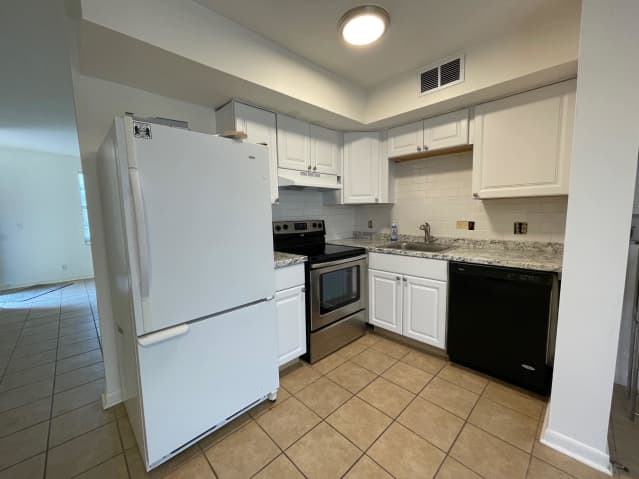When Nashville, Tenn. native Stephen Parker recently listed a mobile home that he owns on the rental market, he received about 30 applications in one week. “I priced it competitively,” he said.
Parker, who is also a real-estate agent, said that he sees rent growth staying strong as people find it too expensive to purchase homes, a situation made worse by low inventory, and high interest rates.
He bought his first investment property in 2020, and his portfolio of rentals has since grown. He owns various properties, including a small mobile home park, a duplex and several single-family homes.
“We’ve become a renting nation,” he added. People have more flexibility, they have fewer responsibilities that come with home ownership, and they can move cities and states more freely. “I don’t think it’s a bad thing.”
Nashville, for its part, was ranked one of the hottest real-estate markets of 2023 by Zillow
Z,
But with the surge in interest rates and demand, new residents may find buying property in that city expensive.

Stephen Parker, a landlord and real-estate agent from Tennessee, said demand for his rentals has been strong.
Stephen Parker
With homeownership continuing to be out of reach, landlords like Parker are poised to benefit. “You may be better off renting, especially if you don’t know if Nashville is where you’re going to be forever,” Parker told MarketWatch.
Rates began climbing after the U.S. Federal Reserve began raising interest rates in early 2022. On Wednesday, the Mortgage Bankers Association said the 30-year rate was averaging 6.48%, up from 3.22% in early 2022.
Higher rates have added hundreds of dollars in interest costs to home buyers’ monthly payments. Buyers have subsequently seen the amount they can afford to pay for a house shrink, even as there are fewer homes for sale.
The U.S. economic outlook remains unclear — a situation compounded by the crisis in the banking sector. Many Americans are worried about job security and financial stability, and are reluctant to purchase a home, according to Fannie Mae
FNMA,
Some good news: rents appear to have stabilized. The government’s analysis of the housing sector shows that rent jumped 0.8% in February, pushing the increase over the past year to a 42-year high of 8.8%.
However, research from private sources — such as Apartment List — indicate that rent growth has slowed down. After five straight months in which rents fell, national rents rose by 0.3% in February, the company said.
‘I just want roots’
Jennifer Mark, a 49-year-old autotransfusionist in Goshen, Ind., lives in a $625-a-month one-bedroom apartment with her adult daughter and husband. She’s been selling cupcake toppers on Etsy to bring in extra money.
But thanks to medical bills that are weighing on her credit score, Mark is not yet able to qualify for a Federal Housing Administration-backed loan and can’t purchase a larger home with a budget of about $150,000.
Finding a two-bedroom to rent would make homeownership a more distant prospect. The higher monthly rent would make it difficult for her to save for a home, and to pay off the debts that are keeping her credit score low.
The average rent for a two-bedroom apartment in Goshen is $925 per month, up 12% from a year ago, according to Rent.com. For a decent apartment, the cost is closer to $1,200. “My God, rent is so high,” she said.
Renting also comes with restrictions. “If I’m going to be paying this much for rent, then I may as well own and be able to do what I want with my house and not have someone tell me, ‘Oh, you can’t have a cat. You can’t have a dog,’” she said.
She needs to pay off medical bills so she can achieve a credit score of at least 580 — a level she’s already surpassed on newer credit-scoring models not often used by mortgage lenders, like FICO 8 — and qualify for a loan.
Renting does have some perks, she said. She doesn’t have to worry about paying for plumbing or furnace issues, for instance. But owning a home is still her dream, and it remains out of reach. “I just want roots,” Mark said.
A generation of renters?
The data shows a mixed picture for renters: While the U.S. is building a ton of apartments, home prices aren’t expected to fall enough to make owning one affordable for many lower-income Americans.
There are currently over 940,000 apartments under construction, up 24.9% from a year ago, helping to address demand. The number of multifamily units under construction is, in fact, at the highest level since 1974.
But the supply is not helping all Americans equally. The U.S. is short approximately 7.3 million affordable, available rental homes for extremely low-income tenants, according to the National Low Income Housing Coalition.

One of Stephen Parker’s rental units.
Stephen Parker
Newer units, meanwhile, have been targeted at higher-income renters, wrote Whitney Airgood-Obrycki, a senior research associate at the Harvard Joint Center for Housing Studies, in a blog post this month.
And while rent growth has moderated for more expensive apartments in more sought-after neighborhoods, Airgood-Obrycki wrote, prices were rising faster at the end of last year for the lowest-quality units.
Landlords are slowing rent increases, Redfin
RDFN,
deputy chief economist Taylor Marr said in a recent report, “because they’re grappling with a rise in vacancies as an influx of new apartments hits the market.”
Renters — particularly in the multifamily sector — are more likely to stay put due to high interest rates, Henry Stimler, an executive in the multifamily capital-markets division at the real-estate firm Newmark, told MarketWatch.
“Those who bought apartment buildings last year and locked in historically low rates before rates started rising, they’re going to be okay, because less and less of their tenants are going to leave and become homeowners,” Stimler said.
Some Americans feel like they are becoming a generation of permanent renters, losing out on the “American dream” of owning a home and building wealth through real estate. But Stimler said he did not think that was necessarily a bad thing.
“Our parents got married at 21 or 22, settled down, bought a home, got on the property ladder, and that was their first property purchase,” Stimler said. “That was a huge milestone then. Today, we don’t have that need anymore.”
“Millennials are much more transient,” he said. “They want to be able to pick up and leave, and go anywhere [and have] the ability to work from anywhere. All of these factors have led to a decline in the demand for single-family homes.”
Wherever you lie on that particular debate, one thing is clear: landlords are benefiting from an increasingly unaffordable housing market, while millions of renters in the U.S. find themselves trapped.
“One man’s meat is another man’s poison,” Stimler said.


